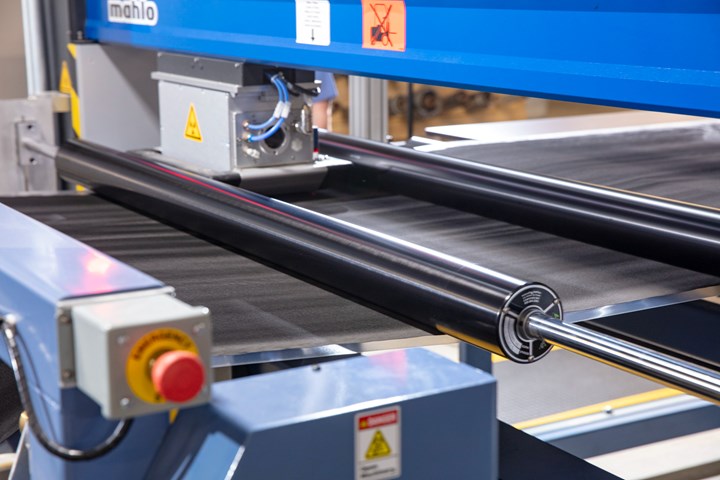Boston Materials expands into hydrogen fuel cells market with ZRT lightweight bipolar plates
In collaboration with Arkema, Boston Materials introduces its high-performance, recyclable material for boosting fuel cell performance and lowering costs.
Boston Materials (Boston, Mass., U.S.) a high-performance materials company, has announced the introduction of ZRT lightweight bipolar plates in collaboration with specialty materials company Arkema (King of Prussa, Pa., U.S. and Colombes, France).
With the launch of this new product, Boston Materials reports it is disrupting the burgeoning hydrogen fuel cell market, as well as industry’s cost and weight targets by using ZRT composite films to make significantly lighter bipolar plates made with 100% reclaimed carbon fiber. With hydrogen quickly becoming one of the cleanest options to power industries that typically rely on fossil fuels, especially for warehouse automation, drones, long-haul trucking and aviation applications, these lightweight bipolar plates are increasing fuel cell capacity and enabling hydrogen fuel cells to be more competitive than other alternatives, the company says.
“With this new product, Boston Materials is unlocking a significant performance and cost advantage for fuel cell makers, allowing them to convert their end users from fossil fuel to higher functioning, cleaner systems that are powered by hydrogen,” Anvesh Gurijala, CEO of Boston Materials, says. “We are thrilled to partner with Arkema on this initiative as we expand into the energy storage market.”
When it comes to hydrogen fuel cells and energy storage, the bipolar plate is a key component of a fuel cell stack. It is said to pass the current generated within a fuel cell throughout the stack, ensure the proper flow of hydrogen and water and maintain overall structure, all while withstanding the internal hot and corrosive conditions. Bipolar plates account for up to 80% of the overall stack weight, and plates made with Boston Materials’ ZRT are claimed to be more than 50% lighter than incumbent stainless steel plates. This weight reduction increases the capacity of the fuel cell by 30%.
“As Arkema continues to invest in sustainably manufactured high-performance polymers, we are excited to work with Boston Materials on this new application for energy storage,” Mickael Havel, business development director at Arkema, notes. “Together, we have the potential to unlock new market opportunities for polymer composite materials and significantly reduce overall carbon emissions within the industry.”
Boston Materials’ ZRT composite films are made using the company’s patented Z-axis Fiber technology — a lightweight material with the ability to diffuse energy. Produced from 100% reclaimed carbon fiber, Z-axis Fiber is said to be enabling high-volume, energy-efficient products that have a low carbon footprint.
Related Content
-
Composites end markets: Automotive (2024)
Recent trends in automotive composites include new materials and developments for battery electric vehicles, hydrogen fuel cell technologies, and recycled and bio-based materials.
-
Update: THOR project for industrialized, recyclable thermoplastic composite tanks for hydrogen storage
A look into the tape/liner materials, LATW/recycling processes, design software and new equipment toward commercialization of Type 4.5 tanks.
-
Composites end markets: Energy (2024)
Composites are used widely in oil/gas, wind and other renewable energy applications. Despite market challenges, growth potential and innovation for composites continue.
















